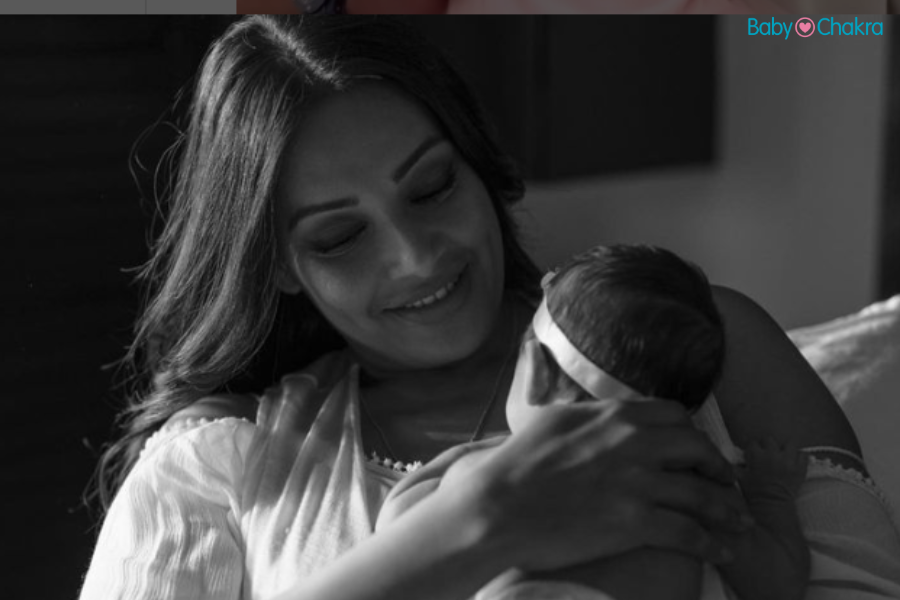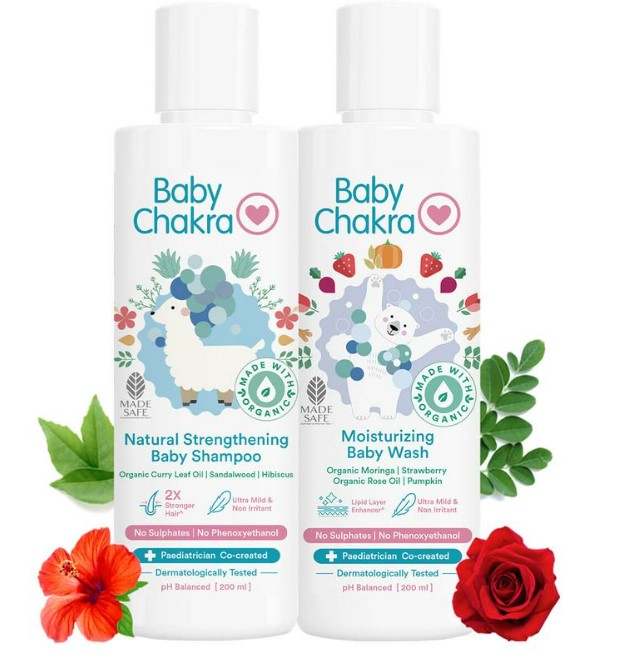
Bipasha Basu Loves Dancing With Daughter Devi: Benefits Of Dance And Music For Babies
27 Apr 2023 | 4 min Read
Manisha Pradhan
Author | 1053 Articles
Actor and new mum Bipasha Basu took to Instagram to share an adorable video of her grooving to Tailor Swift’s Never Grow Up. She said it is her favourite thing to do. She captioned the post, “Dancing with Devi Is my most favourite thing to do now #mamaandbaby #motherhood #monkeylove #devibasusinghgrover #bepresent.”
Her sweet post with her adorable daughter was not only a reminder of the importance of spending quality time with kids but also had a hidden message.
Through this video, Basu showcased that introducing music and dance to your little ones can have a myriad of benefits for their development.
In this article, we’ll explore the wonderful world of dance and music for babies, delving into the science behind it, and sharing some fun activities to get your tiny dancer grooving!
Benefits Of Dance And Music For Babies
Boosts Brain Development
It’s no secret that the early years are crucial for a child’s cognitive development. Exposure to music and dance can have a profound impact on a baby’s brain, stimulating neural connections and enhancing their ability to learn.
Engaging with music helps to develop listening skills, pattern recognition, and memory, while dancing encourages spatial awareness and motor skills.
So, grab a colourful scarf and gently sway it to the rhythm of a song. Your baby will love watching the vibrant colours move in time with the music, and you’ll be supporting their cognitive growth too!
Enhances Emotional Well-Being
Music and dance have been linked to improved emotional well-being in babies. Studies have shown that exposure to music can help reduce stress and anxiety, while dancing can release endorphins, the body’s natural feel-good chemicals.
Try creating a soothing playlist of lullabies and soft tunes to play during bedtime routines, or hold a mini dance party in the living room to lift spirits after a long day.
These activities not only create a fun, bonding experience but also support your baby’s emotional health.
Encourages Social Skills
Dance and music are inherently social activities, providing babies with opportunities to interact with others and develop crucial social skills. Group dance sessions, such as baby and parent classes, can help little ones learn about taking turns, sharing, and cooperation.
Consider joining a local baby dance or music class, where you can meet other parents and babies, and share the joy of singing and dancing together.
Builds Language Skills
When you sing to your baby, you’re not only providing them with a delightful auditory experience but also laying the groundwork for language development. The repetition, rhythm, and rhyming of songs help babies to recognise sounds and develop their phonological awareness – a key component of early literacy skills.
Incorporate singing nursery rhymes and songs into your daily routine, and don’t be shy to add some movement – dance along with the lyrics to make it even more engaging!
Fosters Love For Music And Dance
Introducing your baby to music and dance from a young age can help nurture their appreciation for the arts. By regularly incorporating music and movement into your baby’s life, you’re setting the stage for a lifelong love of these creative forms of expression.
So, have fun exploring different genres of music, and introduce your baby to a variety of dance styles. You might even discover a new favourite tune or dance move along the way!
Fun Activities To Get Started With Dance And Music For Babies
Ready to dive into the world of music and dance with your baby? Here are some playful ideas to get you started:
- Create a sensory-rich environment with colourful, textured props and soothing or upbeat music.
- Play instruments together, like shakers or drums, and let your baby explore the sounds they can make.
- Sing nursery rhymes and encourage your baby to mimic the sounds or actions.
- Dance with your baby in your arms, like Bipasha Basu, gently swaying or bouncing to the beat.
- Attend local baby music or dance classes to connect with other parents and babies.
Incorporating music and dance into your baby’s life is not only a joyful experience but also a powerful tool for supporting their overall development.
Recommended natural products for babies
Also Read:
“The Right Age To Introduce Music To Children Is Before The Birth Itself,” Aditi Shah\
A


Suggestions offered by doctors on BabyChakra are of advisory nature i.e., for educational and informational purposes only. Content posted on, created for, or compiled by BabyChakra is not intended or designed to replace your doctor's independent judgment about any symptom, condition, or the appropriateness or risks of a procedure or treatment for a given person.


